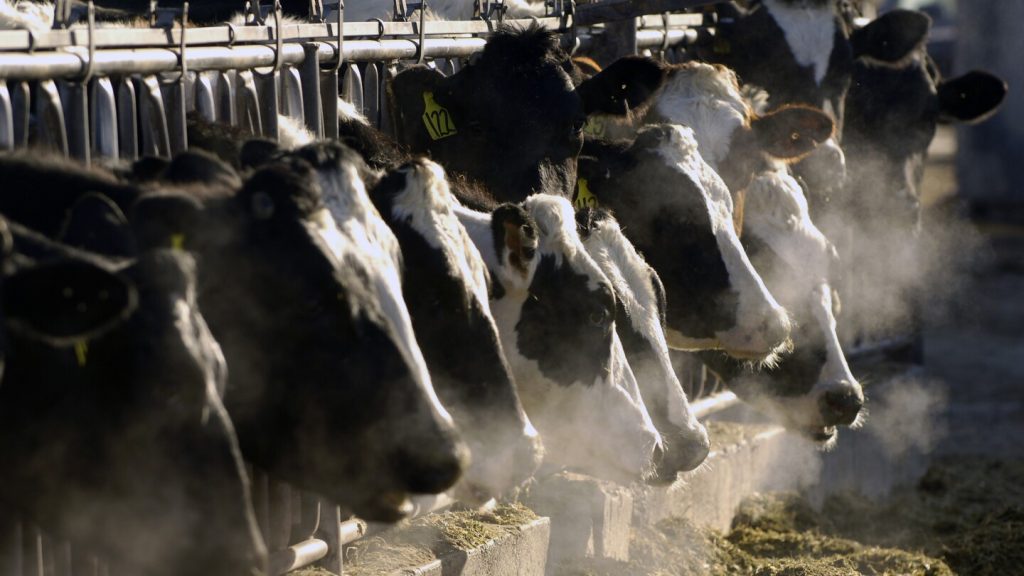An outbreak of bird flu in U.S. dairy cows has affected more than two dozen herds in eight states, following a similar discovery in chickens at the nation’s largest egg producer. Despite this, health officials maintain that the risk to the public is low and that the food supply remains safe and stable. The U.S. Food and Drug Administration has reiterated that there is no concern regarding the safety of consumer health or the interstate commercial milk supply. The virus, known as Type A H5N1, has been detected in cattle for the first time, although genetic analysis shows no evidence of it spreading more easily among humans, according to the U.S. Centers for Disease Control and Prevention.
The bird flu outbreak has led to restrictions on the import of dairy cattle from affected states in an effort to prevent the spread of the virus, even though it has had minimal impact on commercial milk production thus far. Farmers are testing cows displaying symptoms of infection, such as reduced milk supply and lethargy, and separating infected animals from others on the farms. Although cow-to-cow spread cannot be ruled out, the animals are reported to recover within two weeks. U.S. egg producers are also monitoring the situation closely following cases of bird flu in chickens in Texas and Michigan. Despite millions of birds being culled, the FDA assures that the risk of affected eggs entering the retail market and causing infections in humans is low due to federal inspections and safety measures.
According to experts, there is no evidence to suggest that bird flu can be transmitted to humans through pasteurized or properly cooked food. The two reported cases of human infection in the U.S. involved a dairy worker in Texas with a mild eye infection and a prison inmate exposed to infected birds at a poultry farm in Colorado. Pasteurization is emphasized as a safe measure to eliminate the virus from milk, ensuring that milk from sick cows is not sold and is destroyed instead. Groceries stores are deemed safe for milk consumption, as milk sold across state lines must undergo pasteurization to eliminate any potential bacteria or viruses.
While pasteurization guarantees the safety of milk, there is less certainty around the safety of raw milk. Limited information is available on the possible transmission of the H5N1 virus through unpasteurized or raw milk sold in many states. Health officials recommend that the industry refrains from producing or selling raw milk or products made from cows showing symptoms of infection or exposure to infected cows. Despite federal warnings against the consumption of raw milk due to the risk of foodborne illness, the outbreak of bird flu in commercial cows has reportedly boosted sales of raw milk products. Proponents of raw milk argue in favor of its consumption, although caution is advised by the FDA and CDC.
While only dairy cows have been infected with bird flu, there is no evidence of beef cattle being at risk. The largest egg producer in the U.S., Cal-Maine Foods, temporarily halted operations after detecting bird flu in its chickens, resulting in the culling of millions of laying hens. Despite this, the company assured the public that there was no risk to eggs in the market and that no recalls had been made. Proper handling and thorough cooking of eggs are advised by experts to ensure their safety for consumption. Although the situation surrounding bird flu is evolving and there is much that remains unknown, efforts are being made to understand the virus and its potential impact on food safety.


